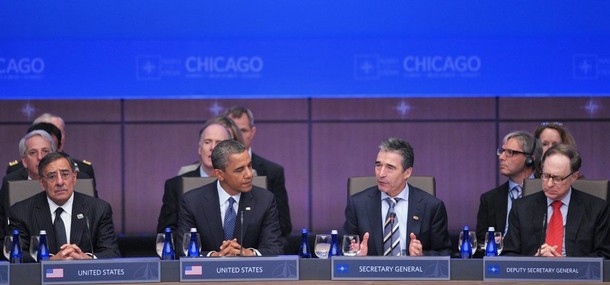All leaders are easily criticized for either having the “wrong” strategy or “no” strategy at all regardless of the issue. In politics, elections exacerbate these critiques without always offering an alternative. In 1968, trapped in Vietnam, U.S. President Lyndon Johnson’s (flawed) strategy was to continue the status quo of defeating the North Vietnamese army and Viet Cong in the south.
Candidate Richard Nixon had a “secret plan.” That plan was so secret as to be non-existent. Seven more years would lapse before that war finally ended with the North winning. But the United States could have prevailed in Vietnam by invading the north. Clearly, at the time, that option was simply not plausible although in retrospect, who knows.
Today’s international scene is more complicated, complex and less conducive to resolution by military force than 40 (or even 20) years ago. In the shadow of thermonuclear war, the Soviet Union provided a mechanism for strategic stability among the superpowers, their allies and other states.
In 2012, flooding Afghanistan (or Syria) with an occupying army won’t work either. This isn’t 1945 when the capitulated Axis powers lay helpless and totally dependent on the largesse of the victors for survival. The future of Afghanistan (and Syria) can only be determined by Afghans (and Syrians), not external powers.
The forces that have transformed international politics and geoeconomics are self-evident. The end of the Cold War, the diffusion and redistribution of all forms of power, instant communications and limits on the use of military force are the most obvious. And what in the West is called “asymmetric war” (that is in reality smart ways for opponents who lack military forces in the conventional sense to defeat those states who have them either through attrition with improvised explosive devices or clever propaganda and ideology) hasn’t been matched by a countervailing and effective response.
To expect the Obama administration at this point to come up with a new or clever strategy to replace the national security documents that are strong on intent and lacking in viable actions is naïve. Similarly, Mitt Romney’s campaign doesn’t want to be trapped by specifics for strategy that become tempting targets for political counterattack.
Yet, America needs a viable strategy. General of the Army George Marshall’s dictum seven decades ago that, if you get the objectives right, a lieutenant can write the strategy sounds good. The problem is that this is not 1942 when the aims were to defeat the Japanese and Germans war machines, occupy the enemy combatant states and ensure that the new governments would be cleansed of the fascist and authoritarian Nazi and the militarist regimes.
Similarly, once the Cold War hardened, containing the Soviet Union while strengthening the economies of the “free world” made strategic and common sense. That is what happened. Ultimately, the Soviet Union fell of its own weight and the irrationality of its political and economic systems.
Unfortunately, no equivalently powerful unifying force as the Soviet Union exists today. Radical religions and extreme ideologies, Islamic or not, don’t offer a similarly unifying attraction. And the siren like calls for peace, stability and democracy likewise are pursuits, not hard-nosed objectives that can be put into achievable policies and strategies.
That said, creating an achievable strategy isn’t unobtainable or delusionary. The first and most crucial component is building strong economies. So obvious, the failure of governments to achieve this condition is inexplicable yet understandable. Politicians refuse to take tough choices and prefer deferral to decision from Athens to Brussels, Madrid and Washington.
The second organizing principle co-opts the unofficial motto of the Royal Canadian Mounties — “never send a man where you can send a bullet.” And this principle doesn’t apply only to drones. Regional powers and organizations are crucial to tackling regional issues in which the United States and others can serve as facilitators or guarantors and not simply interventionists. This isn’t rocket science. Unfortunately, as Clausewitz observed, war consists of the simplest activities that can become impossible in the fog and friction of combat. The same caution applies more broadly to geostrategy.
Recommendations such as creating an off-budget infrastructure bank or re-establishing a Glass-Steagall banking law have frequently appeared in this column as economic fixes. Expanding alliances and partnerships using the United Nations, NATO, local and regional alliances and organizations as the basis for galvanizing shared interests into action is straightforward. Yet, despite the pleas for greater partnership action, little has transpired.
An abundance of common sense would work nicely. Problems and challenges are acute. Some aren’t readily solvable. But until a real and not an expedient strategy is adopted and leaders have the resolve and political courage to implement it, expecting great things from any government, anywhere, is illusionary.
Harlan Ullman is Senior Advisor at the Atlantic Council, Chairman of the Killowen Group that advises leaders of government and business, and a frequent advisor to NATO. This article was syndicated by UPI.
Image: obama%20at%20NATO.jpg
